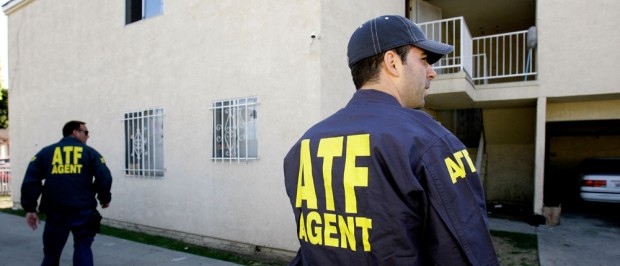The U.S. Bureau of Alcohol, Tobacco and Firearms came under investigation for the botched “Fast and Furious” gun-running operation, but the truth is that the agency routinely employs morally questionable tactics to do their job.
Videos by Rare
A new investigative report by the Milwaukee Journal Sentinel finds a laundry list of egregious tactics in sting operations around the country.
One of the most horrific of the uncovered stories involves federal agents who paid a mentally disabled boy to get a pot-smoking squid tattoo on his neck. Reports show that they routinely deceive mentally disabled people to use them as ploys in their sting operations.
Other offenses, from the Journal Sentinel:
- ATF agents befriended mentally disabled people to drum up business and later arrested them in at least four cities in addition to Milwaukee. In Wichita, Kan., ATF agents referred to a man with a low IQ as “slow-headed” before deciding to secretly use him as a key cog in their sting. And agents in Albuquerque, N.M., gave a brain-damaged drug addict with little knowledge of weapons a “tutorial” on machine guns, hoping he could find them one.
- Agents in several cities opened undercover gun- and drug-buying operations in safe zones near churches and schools, allowed juveniles to come in and play video games and teens to smoke marijuana, and provided alcohol to underage youths. In Portland, attorneys for three teens who were charged said a female agent dressed provocatively, flirted with the boys and encouraged them to bring drugs and weapons to the store to sell.
- As they did in Milwaukee, agents in other cities offered sky-high prices for guns, leading suspects to buy firearms at stores and turn around and sell them to undercover agents for a quick profit. In other stings, agents ran fake pawnshops and readily bought stolen items, such as electronics and bikes — no questions asked — spurring burglaries and theft. In Atlanta, agents bought guns that had been stolen just hours earlier, several ripped off from police cars.
- Agents damaged buildings they rented for their operations, tearing out walls and rewiring electricity — then stuck landlords with the repair bills. A property owner in Portland said agents removed a parking lot spotlight,damaging her new $30,000 roof and causing leaks, before they shut down the operation and disappeared without a way for her to contact them.
- Agents pressed suspects for specific firearms that could fetch tougher penalties in court. They allowed felons to walk out of the stores armed with guns. In Wichita, agents suggested a felon take a shotgun, saw it off and bring it back — and provided instructions on how to do it. The sawed-off gun allowed them to charge the man with a more serious crime.
- In Pensacola, the ATF hired a felon to run its pawnshop. The move widened the pool of potential targets, boosting arrest numbers.Even those trying to sell guns legally could be charged if they knowingly sold to a felon. The ATF’s pawnshop partner was later convicted of pointing a loaded gun at someone outside a bar. Instead of a stiff sentence typically handed down to repeat offenders in federal court, he got six months in jail — and a pat on the back from the prosecutor.
The ATF refused to be interviewed by the newspaper but provided this statement:
“Long-term undercover investigations are one of many tools used by ATF in locations that have high levels of violence occurring in the demographics and a mechanism is needed to rid the area of a large volume of individuals (as) opposed to a handful of individuals.”
The agency is a $1.2 billion operation and appears to be somewhat of a black pit, in terms of accountability.



